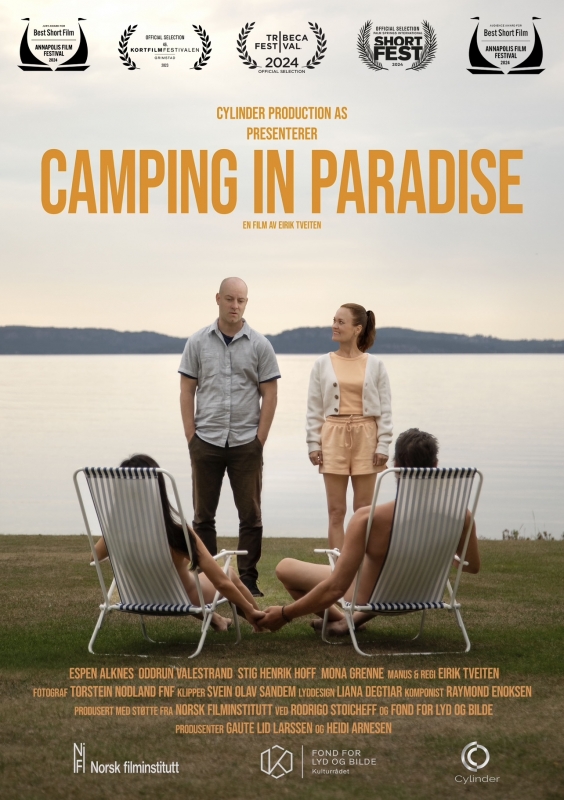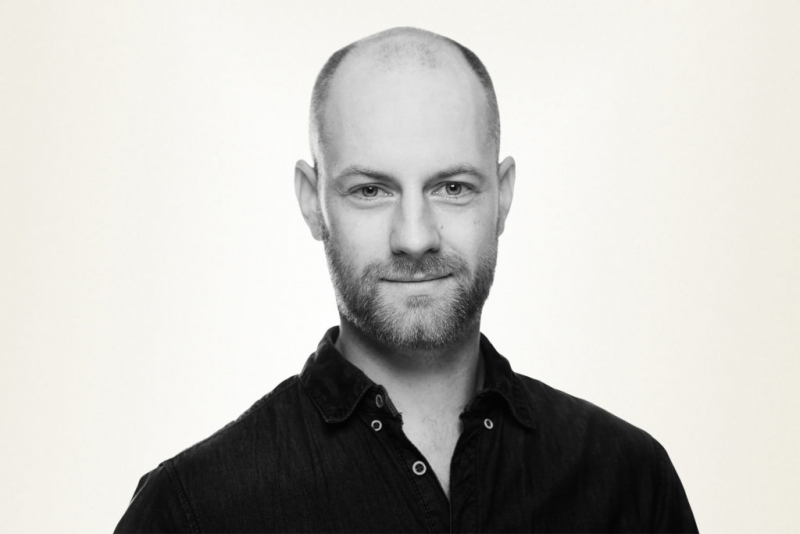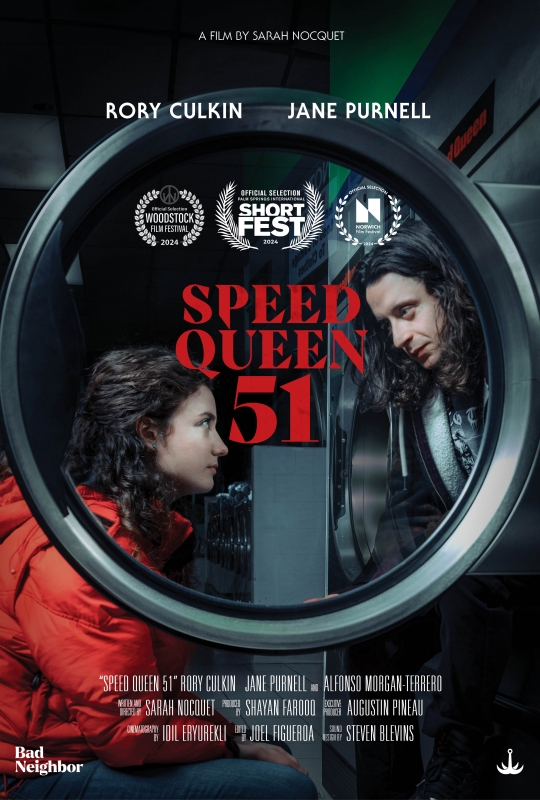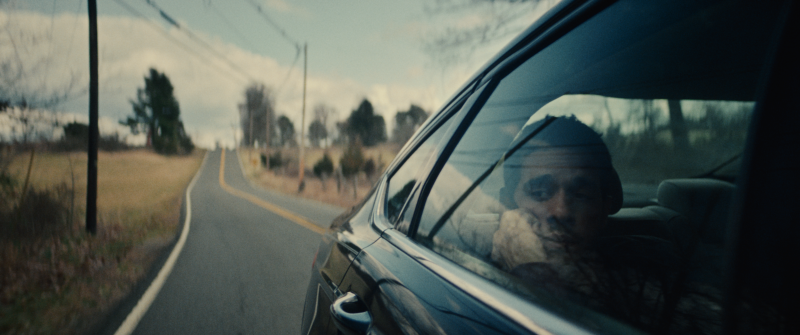|
|
||
|
Pro Tools
FILMFESTIVALS | 24/7 world wide coverageWelcome ! Enjoy the best of both worlds: Film & Festival News, exploring the best of the film festivals community. Launched in 1995, relentlessly connecting films to festivals, documenting and promoting festivals worldwide. Working on an upgrade soon. For collaboration, editorial contributions, or publicity, please send us an email here. User login |
'How Big Is Your Love?' Interview with Fatma Zohra Zamoum
Algerian director Fatma Zohra Zamoum (‘How Big is Your Love’, 2011); speaks. The film ‘How Big is Your Love’ (Kedach ethabni, 2011) by writer/director/producer Fatma Zohra Zamoum is set in modern Algiers, Algeria. It is a touching tale about a young eight year-old boy, Adel, whose parents are in the midst of an irreconcilable separation, during which time Adel stays with his grandmother. To cope with the emotionally challenging situation, Adel finds an escape with zoo animals and finds pleasure cooking with his grandmother. I interviewed Fatma shortly after meeting in Palm Springs, California where I had seen the North American premier of the film. I wanted to know about the meaning of the film’s title, ‘How Big Is Your Love’. Fatma explained: “The title brings the main question between the grandmother and her grandson: ‘How big is your love? Or how much do you love me?’ By asking this question she brings another level of discussion, which is love. Love is not natural but is something that we have to grow up or to be cultivated like a garden. By bringing this subject in Algeria today, it makes us think about what is living today in an Arab country, what is been alive, what is been free to love or not and by consequences what it means to be free to make choices and what kind of choices we have.” When I had met Fatma, I told her that I had spent some time in Morocco but never Algeria. I asked her about the differences between the neighboring countries. Fatma explained: “By being a kingdom Morocco is more traditional in a specific way. I mean the royal family is a kind of tradition that brings to the population of Morocco rules and ceremonies, which are very old. You can see that in the streets in the houses and in the respect that Moroccans have for the royal family. In Algeria it is modern because it is a republic with no formal tradition no handcraft markets, no way of life dictated by the supreme governor, no traditional houses and no folklore in the streets. That means that Algeria is like other Mediterranean countries (Greece, Spain or Italy) with a different religion. Of course Algeria is very big and what is Mediterranean in the sea cities is not there in the countryside or desert so it is very complicated to give a simple answer to this question….But I don’t want to be misunderstood, so let me tell you that I love Morocco and I love Algeria too. Sometimes Algerians feel like if they have lost their tradition in comparison of Morocco but I don’t feel like that because I am proud being part of a modern country but I would like to be in a country which is taking it easy with religion and with this silly gender problems.” I commented that as an American myself, who has never traveled to Algeria, all I know of Algeria is what I’ve seen in the news and in film. Fatma enlightened me about contemporary Algeria: “Well, now we are celebrating the 50th anniversary of freedom as an Algerian republic. That means that Algeria has grown three generations of population. The population grew up from 10 million in 1962 to 35 million today. It can’t be compared to the colonized Algeria anymore. Algeria is not the country we had expected it to be because it had political problems and terrorism in the 90’s. That means that Algeria is less then we have dreamed as people born after 1962 but Algeria has build a lot and done a lot in fifty years. Cinema is reflecting this evolving reality but you might not know it (because it was a peaceful cinema and not a war cinema): it is films like TAHIA YA DIDOU in the 70’s by Mohamed Zinet (director) or Omar Guetlato in the 70th by Merzak Allouache (director) and for the 80’s Histoire d’une Rencontre (A Story of a Meeting) by Brahim Tsaki (director) or Nahla by Farouk Beloufa (director) of the Lebanese problem. Unfortunately the cinema industry and funding was broken in the 90’s because of FMI obligations and after that because of political problems.” My next question was of course that it must be very difficult to be a female filmmaker in Algeria. Fatma admitted “Being a female filmmaker is hard everywhere. Can you just find five names of female filmmakers in USA? It is a male thing and everywhere men try to maintain this privilege. In Algeria it is hard because you have to give the proof to the driver as well as to the DOP that you are able to do it. It is just exhausting but what can you do, we have to keep going.”
‘How Big is Your Love’ (Kedach ethabni Algeria, 2011) held its North American Premiere at the 23rd Palm Springs International Film Festival (PSIFF), 2011. Transcribed and written by Vanessa McMahon, February 5, 2012
10.02.2012 | Vanessa McMahon's blog Cat. : 'How Big Is Your Love?' Interview with Fatma Zohra Zamoum Adel Africa Algeria Algeria Algiers Algiers Brahim Tsaki California Director director /producer driver Entertainment Entertainment Farouk Beloufa Fatma Zohra Fatma Zohra Zamoum French Algeria Governor Mediterranean Merzak Allouache Mohamed Zinet Morocco Omar Guetlato Palm Springs Person Career Political geography premier Quotation Spain TAHIA YA DIDOU in the the 23rd Palm Springs International Film Festival Vanessa McMahon writer /director YA DIDOU Interviews
|
LinksThe Bulletin Board > The Bulletin Board Blog Following News Interview with IFTA Chairman (AFM)
Interview with Cannes Marche du Film Director
Filmfestivals.com dailies live coverage from > Live from India
Useful links for the indies: > Big files transfer
+ SUBSCRIBE to the weekly Newsletter Deals+ Special offers and discounts from filmfestivals.com Selected fun offers
> Bonus Casino
User imagesAbout Vanessa McMahonThe EditorUser contributions |




























